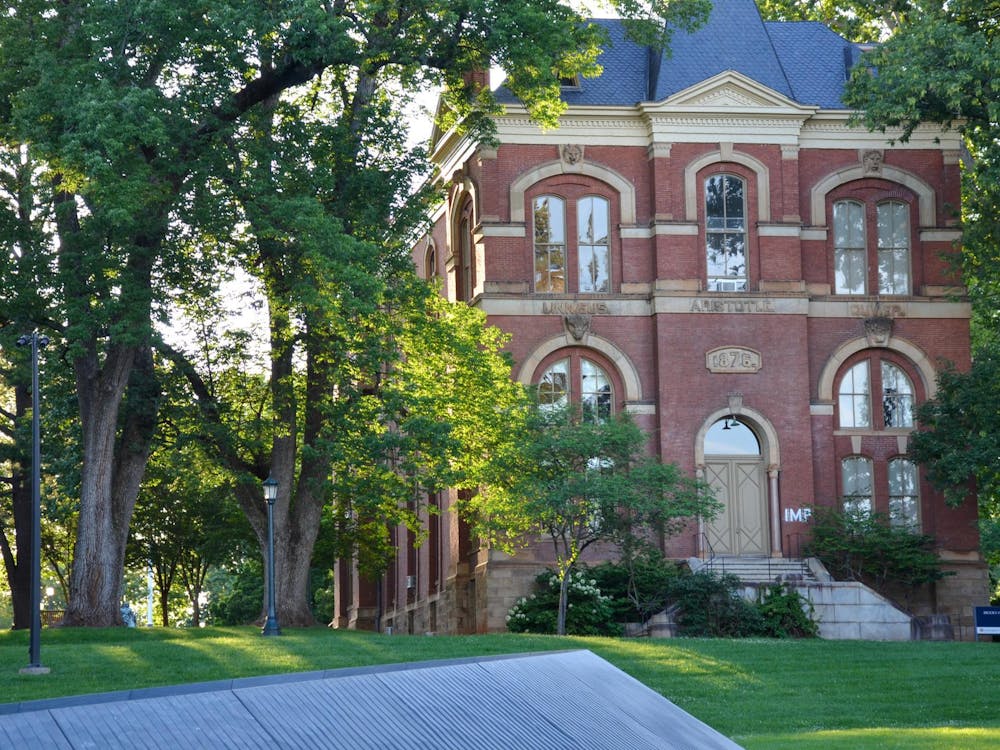First year students, some officials say, may feel pressured to sign a lease prematurely without knowing what they are getting into.
When dealing with off-Grounds housing, problems can range from irresponsible landlords and unplanned expenses to inconvenient locations.
But most of all, Dean of Students Penny Rue said she believes students feel pressured to find a place to live in too much of a hurry.
"Students get in a market frenzy because housing is limited, so they decide very fast, making decisions far in advance of when they need to. It's like the grapevine - what upperclass students feel they should do," Rue said.
University Housing Director Mark Doherty said because off-Grounds advertisers have started to push leasing earlier in the school year, many students feel a sense of urgency to find a place to live.
First-year College student Elizabeth Green said she has felt such anxiety. She and her friends spent last semester looking for an off-Grounds place for next year and encountered several problems along the way.
"There isn't much close to Grounds, and we felt a lot of pressure to get everything settled last semester," Green said.
Letty Lau, a Resident Advisor and a member of Student Council, said many students wish to gain experience by living in what they consider to be the real world.
"I think a lot of students want to go off-Grounds after their first year because they want to be able to live in an environment different from their first-year dormitory and learn how to really live on their own," Lau said.
She said many advantages exist for students wishing to live in University housing, such as close proximity to classes and dining halls, and a slightly cheaper price. Utilities are also included in an on-Grounds room charge. She added that if a student living on Grounds is having problems, he or she can turn to an RA or Resident Coordinator for help.
However, some disadvantages include parking limitations and the fact that students may not always get their first choice location, Lau said.
According to Lau, the housing process itself needs to be updated to draw more students back to Grounds.
"I think it's unfortunate how early the housing process starts at U.Va. First-year students are forced to make a decision on where to live their second year after only spending a month or two at the University, since most off-Grounds leases are signed by then," she said. "Not only have they not fully acclimated to the University, but they haven't had a chance to really find out who they want to live with, where good locations are and the different options on Grounds."
Doherty said there it is commonly assumed that living off Grounds is less costly, but this is not always the case.
"I understand that there is something of an assumption that living off Grounds is less expensive. There are always exceptions, but, when quality, cost and convenience are factored in, I am less certain this is the case generally," he said.
He added that there are between 50 and 75 vacancies in on-Grounds housing at the beginning of each school year to accommodate upperclassmen who may make last minute decisions about where they are living.
As for future upperclass housing, Doherty said the University has discussed plans for a new language house.
"We are planning a 78-bed facility on [Jefferson Park Avenue], next to Casa Bolivar. At the moment, it is conceived as a language house, housing several language groups," he said.
And to make way for future first-year classes, the University now is building a new dorm behind Alderman Road's Dunnington House .
Out of the 18,400 students enrolled at the University, George Stovall, director of institutional studies & assessment, said about 5,500 students now live off Grounds, not including those living in fraternity and sorority houses. According to the Institutional Assessment & Studies, from 1994-1998, 5 percent of students lived in fraternities and sororities, while 60 percent of students lived in other non-University housing.
Doherty said about 30 percent of the upperclass and 8 percent of the graduate and professional students reside on Grounds, and about 6,400 spaces are available, including those for Resident Staff and student families.
"We assure housing for the following year for all upperclass students living on Grounds presently," he said.






